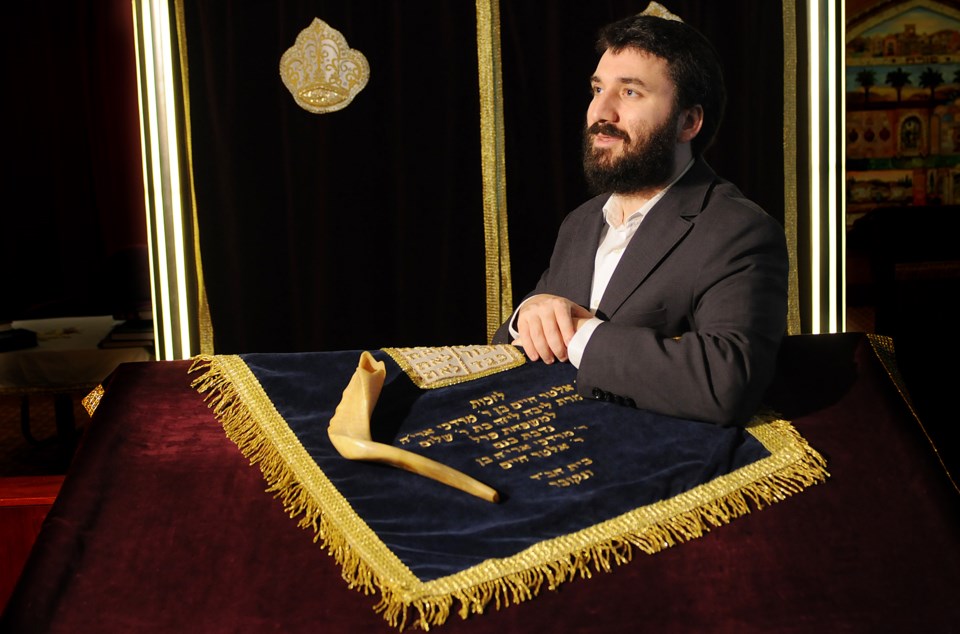Thanks to Adam Sandler and a well-intentioned impulse toward inclusiveness during the December holiday season, most Canadian school kids grow up knowing about the Jewish holiday of Chanukah. But Chanukah is a relatively minor holiday in the greater Jewish narrative. If you really want to seem multiculturally and interfaithfully inclusive, now is the time to send seasonal well wishes your Jewish neighbours’ way.
At sundown this Wednesday, the Jewish new year begins. The two-day celebration of Rosh Hashanah (literally, the head of the year) is the start of 10 days known as the High Holy Days, which begin with a celebratory beginning and end on the holiest and most solemn day of the Jewish calendar, Yom Kippur, the Day of Atonement. Word to the culturally sensitive: “Happy new year” or
“Shana tovah” (“good year”; pronounced sha-NAH toe-VAH) are welcome greetings. “Happy Yom Kippur” is not. Yom Kippur is a deeply introspective and fervent day of fasting and spiritual self-assessment.
Rabbi Schneur Wineberg, who leads Chabad of East Vancouver, a branch of the Lubavitch Chassidic group, says Rosh Hashanah and Yom Kippur invert the relationship paradigm most humans are familiar with.
“Let’s say you were going to try to strengthen your relationship with someone you’ve offended. What’s your first step? Apologize. Ask for forgiveness. And then you make up,” says the rabbi. “We flip that around with God. Rosh Hashanah is a happy holiday. Rosh Hashanah is joyous, God is our king, we crown him, we strengthen the relationship, we commit to another year of being his subjects.
“[On] Yom Kippur, now we’ve come to God. Now that we’ve reconnected — you’re ruling over us for another year, we are your children, we’re your subjects, we are your slaves, all those examples — now forgive us for everything we’ve done. Now that you see how much we love each other, now that you see how strong our connection is, come Yom Kippur, now we say ‘forgive us.’” This period, also known as the Days of Awe, is a time of teshuvah, of “returning.”
“And that’s actually broken down into two parts of returning,” Wineberg says. “One is regret on the past and the second one is good resolutions for the future.”
At Rosh Hashanah and in the intervening days before Yom Kippur, observant Jews are called upon to make amends with other people. By Yom Kippur, that work should be done. Before Yom Kippur, Jews wish one another to “be inscribed in the book of life” for another year, a theological idea that this is the period when determinations are made about the fate of people for the coming year. Making good on broken relationships — with God, with family and friends — helps determine that fate.
Conventionally, the High Holy Days are viewed as beginning in joy and reverie and ending in solemnity and gravity. But, though Yom Kippur is certainly solemn, Wineberg refuses to see it as sad.
“Yom Kippur is a very solemn day, but it’s a very joyous day, it really is. It’s a Jewish paradox,” he laughs. “You have to remember, Jewish tradition says that repentance and coming closer to God, teshuvah, is not a sad thing, it’s not a bad thing, it’s a good thing. We’re not saying to God, ‘we want to be in your good graces because you might smite me or I’m going to go to hell.’ That’s not why we do teshuvah. We do it because we want to. It’s the same way that we learn that any transgression that we do weakens the connection, like a rope made up of 613 strands [the number of commandments in the Torah] and if you transgress one, you weaken the connection. And when you return, you strengthen that rope again, you strengthen that connection.”
This period is not only about coming to peace with God, he says, it is about coming to peace with fellow humans.
“If you’ve offended someone, then on that week between Rosh Hashanah and Yom Kippur, you’re supposed to ask forgiveness. You’re supposed to make up with them. You’re not supposed to let it linger into the new year.” It is not God’s department, Wineberg says, to absolve people of transgressions against other people. That is a human-to-human contract. If you have broken God’s commandments, that is the repentance you bring to God.
And while God plays a big role in the holy days, people are no bit players, either. Rosh Hashanah marks the first day of the Jewish new year, but it does not coincide with the day of creation.
That, according to Jewish tradition, is five days earlier. Rosh Hashanah is the sixth day of creation, the day the book says God created man.
“We don’t celebrate the new year on the first day of creation, we celebrate on the sixth day of creation, which shows that we are understanding God’s responsibility that has been placed upon us and we are committing to another year of being loyal subjects and Jews.”



